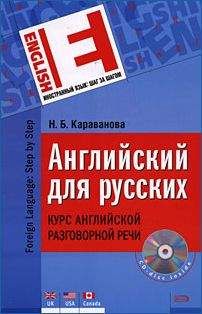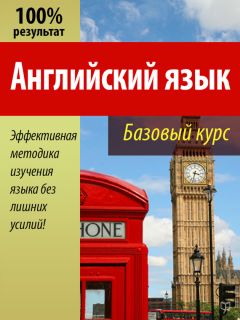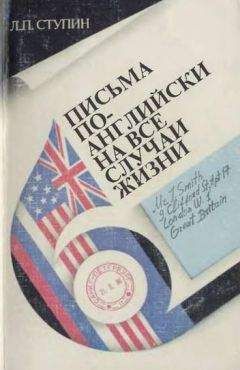Илья Франк - Английский язык с Крестным Отцом
Late that afternoon Hagen received a call from the producer's secretary that a car would pick him up within the hour (заедет за ним: «подберет его» примерно через час, в течение часа) to take him out to Mr. Woltz's country home for dinner. She told him it would be about a three-hour drive but that the car was equipped with a bar and some hors d'oeuvres (закусками; hors d'oeuvre [o:’d∂:vr] – закуска /франц./). Hagen knew that Woltz made the trip in his private plane and wondered why he hadn't been invited to make the trip by air. The secretary's voice was adding politely, "Mr. Woltz suggested you bring an overnight bag (сумку с ночными принадлежностями; overnight – прдназначенный для использования ночью) and he'll get you to the airport in the morning."
"I'll do that," Hagen said. That was another thing to wonder about (над чем стоило задуматься). How did Woltz know he was taking the morning plane back to New York? He thought about it for a moment. The most likely explanation was (наиболее вероятным объяснением было) that Woltz had set private detectives on his trail (по его следу) to get all possible information. Then Woltz certainly knew he represented the Don, which meant that he knew something about the Don, which in turn meant that he was now ready to take the whole matter seriously. Something might be done after all, Hagen thought. And maybe Woltz was smarter than he had appeared this morning (был умнее, чем казался).
Hagen listened patiently. He had expected better from a man of Woltz's stature. Was it possible that a man who acted this stupidly could rise to the head of a company worth hundreds of millions? That was something to think about since the Don was looking for new things to put money into, and if the top brains of this industry were so dumb, movies might be the thing. The abuse itself bothered him not at all. Hagen had learned the art of negotiation from the Don himself. "Never get angry," the Don had instructed. "Never make a threat. Reason with people." The word "reason" sounded so much better in Italian, rajunah, to rejoin. The art of this was to ignore all insults, all threats; to turn the other cheek. Hagen had seen the Don sit at a negotiating table for eight hours, swallowing insults, trying to persuade a notorious and megalomaniac strong-arm man to mend his ways. At the end of the eight hours Don Corleone had thrown up his hands in a helpless gesture and said to the other men at the table, "But no one can reason with this fellow," and had stalked out of the meeting room. The strong-arm man had turned white with fear. Emissaries were sent to bring the Don back into the room. An agreement was reached but two months later the strong-arm was shot to death in his favorite barbershop.
So Hagen started again, speaking in the most ordinary voice. "Look at my card," he said. "I'm a lawyer. Would I stick my neck out? Have I uttered one threatening word? Let me just say that I am prepared to meet any condition you name to get Johnny Fontane that movie. I think I've already offered a great deal for such a small favor. A favor that I understand it would be in your interest to grant. Johnny tells me that you admit he would be perfect for that part. And let me say that this favor would never be asked if that were not so. In fact, if you're worried about your investment, my client would finance the picture. But please let me make myself absolutely clear. We understand your no is no. Nobody can force you or is trying to. We know about your friendship with Mr. Hoover, I may add, and my boss respects you for it. He respects that relationship very much."
Woltz had been doodling with a huge, red-feathered pen. At the mention of money his interest was aroused and he stopped doodling. He said patronizingly, "This picture is budgeted at five million."
Hagen whistled softly to show that he was impressed. Then he said very casually, "My boss has a lot of friends who back his judgment."
For the first time Woltz seemed to take the whole thing seriously. He studied Hagen's card. "I never heard of you," he said. "I know most of the big lawyers in New York, but just who the hell are you?"
"I have one of those dignified corporate practices," Hagen said dryly. "I just handle this one account." He rose. "I won't take up any more of your time." He held out his hand, Woltz shook it. Hagen took a few steps toward the door and turned to face Woltz again. "I understand you have to deal with a lot of people who try to seem more important than they are. In my case the reverse is true. Why don't you check me out with our mutual friend? If you reconsider, call me at my hotel." He paused. "This may be sacrilege to you, but my client can do things for you that even Mr. Hoover might find out of his range." He saw the movie producer's eyes narrowing. Woltz was finally getting the message. "By the way, I admire your pictures very much," Hagen said in the most fawning voice he could manage. "I hope you can keep up the good work. Our country needs it."
Late that afternoon Hagen received a call from the producer's secretary that a car would pick him up within the hour to take him out to Mr. Woltz's country home for dinner. She told him it would be about a three-hour drive but that the car was equipped with a bar and some hors d'oeuvres. Hagen knew that Woltz made the trip in his private plane and wondered why he hadn't been invited to make the trip by air. The secretary's voice was adding politely, "Mr. Woltz suggested you bring an overnight bag and he'll get you to the airport in the morning."
"I'll do that," Hagen said. That was another thing to wonder about. How did Woltz know he was taking the morning plane back to New York? He thought about it for a moment. The most likely explanation was that Woltz had set private detectives on his trail to get all possible information. Then Woltz certainly knew he represented the Don, which meant that he knew something about the Don, which in turn meant that he was now ready to take the whole matter seriously. Something might be done after all, Hagen thought. And maybe Woltz was smarter than he had appeared this morning.
The home of Jack Woltz looked like an implausible movie set (выглядел подобно невероятной, фантастической съемочной площадке, подобно каким-то невероятным декорациям; implausible [ım'plo:zıbl] – невероятный, невозможный; plausible [‘plo:zıb∂l] – благовидный; правдоподобный). There was a plantation-type mansion (особняк), huge grounds girdled (огромные участки, опоясанные) by a rich black-dirt (с посыпанной черной землей; dirt – грязь; рыхлая земля) bridle path (конной дорожкой; bridle [braıdl] – уздечка), stables and pasture for a herd of horses (и пастбище для табуна коней; pasture [‘pα:st∫∂]). The hedges (живые изгороди), flower beds (клумбы) and grasses were as carefully (столь же тщательно) manicured as a movie star's nails (ногти).
Woltz greeted Hagen on a glass-panel air-conditioned porch (на застекленном крыльце с кондиционером). The producer was informally dressed (по-домашнему) in blue silk shirt open at the neck, mustard-colored slacks (в широких брюках горчичного цвета; mustard [‘mLst∂d] – горчица), soft leather sandals (из мягкой кожи). Framed in all this color and rich fabric (в обрамлении всех этих красок и яркой, насыщенной цветом ткани; fabric [‘fæbrık] – ткань, материал) his seamed, tough face (жесткое, грубое [tLf]) was startling (смотрелось странно, поражало; to startle – испугать, поразить, заставить вздрогнуть). He handed Hagen an outsized martini glass (огромный стакан) and took one for himself from the prepared tray (с подготовленного подноса). He seemed more friendly than he had been earlier in the day. He put his arm over Hagen's shoulder and said, "We have a little time before dinner, let's go look at my horses." As they walked toward the stables he said, "I checked you out, Tom; you should have told me your boss is Corleone (должны бы были /сразу/ сказать мне). I thought you were just some third-rate hustler (третьеразрядный мошенник; hustler – предприимчивый человек; мошенник) Johnny was running in to bluff me (прислал запугать меня, взять меня на пушку, блефовать со мной). And I don't bluff. Not that I want to make enemies (не то чтобы я хотел делать врагов), I never believed in that (мне это никогда не нравилось: «я никогда в это не верил»). But let's just enjoy ourselves now (давайте сейчас просто развлечемся, приятно проведем время). We can talk business after dinner."
Surprisingly Woltz proved to be a truly considerate host (оказался поистине радушным хозяином; considerate [k∂n'sıd∂rıt] – внимательный к другим, деликатный, тактичный). He explained his new methods, innovations (нововведения) that he hoped would make his stable the most successful in America (самыми преуспевающими /конюшнями/). The stables were all fire-proofed (огнеупорные; proof – подтверждение, доказательство; непроницаемость), sanitized to the highest degree (оборудованные согласно санитарным требованиям в высочайшей степени), and guarded by a special security detail of private detectives (специальной группой, специальным расчетом ['di:teıl]). Finally Woltz led him to a stall which had a huge bronze plaque (дощечку, пластинку, знак [plα:k]) attached to its outside wall (приделанной к его внешней стене; to attach [∂‘tæt∫] – прикреплять). On the plaque was the name "Khartoum."
The horse inside the stall was, even to Hagen's inexperienced eyes (даже для его неопытных глаз), a beautiful animal. Khartoum's skin was jet black (черная, как смоль; jet – гагат, черный янтарь) except for a diamond-shaped white patch on his huge forehead. The great brown eyes glinted like golden apples, the black skin over the taut body (на туго натянутом, упругом теле) was silk. Woltz said with childish pride (с ребяческой гордостью), "The greatest racehorse in the world (величайшая беговая лошадь в мире). I bought him in England last year for six hundred grand (за шестьсот тысяч; grand – штука /баксов/ – сленг). I bet (готов поспорить, бьюсь об заклад) even the Russian Czars never paid that much for a single horse (такую сумму за одного-единственного коня). But I'm not going to race him, I'm going to put him to stud. I'm going to build the greatest racing stable this country has ever known (когда-либо знала)." He stroked the horse's mane (погладил гриву) and called out softly, "Khartoum, Khartoum." There was real love in his voice and the animal responded. Woltz said to Hagen, "I'm a good horseman (наездник), you know, and the first time I ever rode (когда я сел на лошадь; to ride – ездить верхом) I was fifty years old." He laughed. "Maybe one of my grandmothers in Russia got raped by a Cossack (была изнасилована казаком) and I got his blood." He tickled Khartoum's belly (пощекотал живот, брюхо) and said with sincere admiration (с искренним восхищением; sincere [sın'sı∂]), "Look at that cock on him (какой у него член). I should have such a cock (мне бы такой)."
The home of Jack Woltz looked like an implausible movie set. There was a plantation-type mansion, huge grounds girdled by a rich black-dirt bridle path, stables and pasture for a herd of horses. The hedges, flower beds and grasses were as carefully manicured as a movie star's nails.
Woltz greeted Hagen on a glass-panel air-conditioned porch. The producer was informally dressed in blue silk shirt open at the neck, mustard-colored slacks, soft leather sandals. Framed in all this color and rich fabric his seamed, tough face was startling. He handed Hagen an outsized martini glass and took one for himself from the prepared tray. He seemed more friendly than he had been earlier in the day. He put his arm over Hagen's shoulder and said, "We have a little time before dinner, let's go look at my horses." As they walked toward the stables he said, "I checked you out, Tom; you should have told me your boss is Corleone. I thought you were just some third-rate hustler Johnny was running in to bluff me. And I don't bluff. Not that I want to make enemies, I never believed in that. But let's just enjoy ourselves now. We can talk business after dinner."
Surprisingly Woltz proved to be a truly considerate host. He explained his new methods, innovations that he hoped would make his stable the most successful in America. The stables were all fire-proofed, sanitized to the highest degree, and guarded by a special security detail of private detectives. Finally Woltz led him to a stall which had a huge bronze plaque attached to its outside wall. On the plaque was the name "Khartoum."
The horse inside the stall was, even to Hagen's inexperienced eyes, a beautiful animal. Khartoum's skin was jet black except for a diamond-shaped white patch on his huge forehead. The great brown eyes glinted like golden apples, the black skin over the taut body was silk. Woltz said with childish pride, "The greatest racehorse in the world. I bought him in England last year for six hundred grand. I bet even the Russian Czars never paid that much for a single horse. But I'm not going to race him, I'm going to put him to stud. I'm going to build the greatest racing stable this country has ever known." He stroked the horse's mane and called out softly, "Khartoum, Khartoum." There was real love in his voice and the animal responded. Woltz said to Hagen, "I'm a good horseman, you know, and the first time I ever rode I was fifty years old." He laughed. "Maybe one of my grandmothers in Russia got raped by a Cossack and I got his blood." He tickled Khartoum's belly and said with sincere admiration, "Look at that cock on him. I should have such a cock."
They went back to the mansion to have dinner. It was served by three waiters (официантами) under the command of a butler («под командованием» дворецкого), the table linen (салфетки и скатерти; linen [‘lının] – полотно, холст) and ware (приборы; ware [we∂] – изделия) were all gold thread (золотая нить [θred]) and silver, but Hagen found the food mediocre (нашел посредственной ['mi:dı∂uk∂]). Woltz obviously lived alone, and just as obviously (и точно также очевидно) was not a man who cared about food. Hagen waited until they had both lit up (зажгли; to light up) huge Havana cigars before he asked Woltz, "Does Johnny get it or not?"



